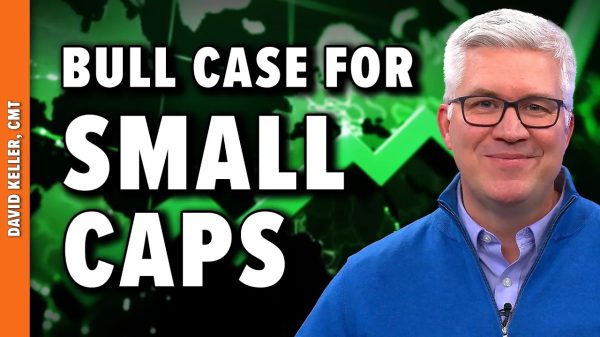The war on the producer is raging on, and the assault on free enterprise and the entrepreneur is hitting an all-time high. Whether it be politicians, academics, or the mainstream media, there’s a relentless effort to paint those who create wealth and prosperity as villains who do nothing but exploit the masses.
This is not just a misguided moral crusade, but it also amounts to an egregious intellectual fraud as it completely ignores fundamental principles of economics and the basic human desire to succeed. It is time to stand up and push back hard against this narrative for the sake of our future as a civilization.
Simply put, producers are the backbone of any economy. Without them, there would be no wealth, no innovation, and no progress. The producer takes risks, invests time and resources, and creates products and services that others will want to buy. The producer’s success is not usually a result of exploitation or of “privilege” but of hard work, ingenuity, and the willingness to take risks to provide value to his fellow man. Yet, despite this fundamental truth, the producer has been subject to a barrage of attacks from those who seek to undermine the principles of free enterprise. The producer is often accused of greed, exploitation, and selfishness, while the virtues of hard work, innovation, and rational self-interest are ignored or dismissed as “Randian” dogma.
The core of this dishonest attack on the producer is the belief that the accumulation of wealth is inherently immoral. This belief is rooted in a false zero-sum view of economics, in which one person’s gain necessarily comes at the expense of another’s loss. In the framework of this argument, individuals who thrive in commerce are purportedly doing so via the exploitation of their labor force or via an unfair advantage, be it an inheritance, political connections, or some other form of unnatural “privilege”—of course, this argument conveniently ignores the entrepreneurs who came from nothing and built large business empires through many decades of grueling work and failures before finally achieving success.
Moreover, the idea that producers exploit their workers is a tired myth. In a free market, both employers and employees are free to negotiate their own terms of employment. No one is forced to work for a particular wage or under particular conditions. If an employer offers unacceptable terms to workers, they are free to seek employment elsewhere. Likewise, if employees are not providing value to the employer, the employer—or at least ought to be in a free society—is at liberty to terminate the workers’ employment. This is not exploitation as socialists and other denizens of the authoritarian quadrant on the ideological spectrum suggest; it is purely and simply the voluntary exchange of value.
Then, there is the two-pronged claim that the socialists often level: First, that any profits whatsoever are theft because each dollar that is accumulated in profit amounts to a dollar’s deduction from the worker’s wages. Second, that the rise of the capitalists represented a marked departure from a previous condition in which all income was wages and there were no profits at all.
Allow me to confront this second claim first. Unfortunately, even many famous capitalist writers and thinkers were not immune to this mistaken idea, which upon closer examination is revealed to be as mythical as the labor theory of value. Speaking of such, Adam Smith—known conventionally as the founder of modern capitalist economics—wrote the following in The Wealth of Nations:
In that original state of things, which precedes both the appropriation of land and the accumulation of stock [capital], the whole produce of labour belongs to the labourer. He has neither landlord nor master to share with him.
Had this state continued, the wages of labour would have augmented with all those improvements in its productive powers to which the division of labour gives occasion.
This statement and other similar ones in Smith’s The Wealth of Nations went a long way in lending undue and unnecessary credence to Karl Marx’s so-called exploitation theory almost a century later. What is wrong with Smith’s claim, you ask? Well, the fundamental mistake can be found in his assertion that the “original state of things” (i.e., the state of the world before the rise of capital accumulation) was a state in which all personal income was effectively a wage because performers of manual labor would produce commodities, sell them, and then use the money earned from the sale to purchase other commodities.
This condition is what Karl Marx himself would later call “simple circulation.” This view has just one issue: sales revenue and wages are two different things entirely. As any sixth grader would tell you, wages are money paid in exchange for another’s labor. However, money paid in exchange for the products of another’s labor is sales revenue, not wages. So, in Marx’s precapitalistic “simple circulation,” there were technically no wages at all.
Now, having dispelled this second myth, let us turn briefly to the first. “Profits are a deduction from wages,” say the socialists, and Smith agreed it would seem, or at the very least, he could not manage a convincing-enough argument to dispute the claim, so he just went with it. Be that as it may, the answer to this rather absurd assertion is quite simple. Profits are not a deduction from wages—quite the contrary. Profits themselves are what is left after deductions. As Dr. George Reisman, Professor Emeritus of Economics at Pepperdine University, explains:
In normal, everyday business and accounting practice, profits are not a deduction from anything. On the contrary, they are the result of deductions. They are what remains after the deduction of wages and all other costs from sales revenues. Nevertheless, Marx makes Smith’s gross error—Smith’s treatment of the result of deductions as though it were a deduction.
Dr. Reisman goes on to explain that contrary to what Smith—and a century later, Marx—believed, that wages themselves—not profits—are a product of the rise of the capitalists:
It also follows that by the virtue of creating the phenomenon of costs of production, i.e., the costs that show up in business income statements, the activity of the capitalists serves to reduce the proportion of sales revenues that is profit. Capitalists do not create profit and subtract it from wages. On the contrary, they create wages and other costs which are subtracted from sales revenues, and thus the capitalists reduce the proportion of sales revenues that is profit. Of course, in creating wages and costs, capitalists not only reduce the proportion of sales revenues that is profit, but they also increase the percentage of sales revenues that equals wages, adding positive amounts to an initial amount of zero, and at the same time correspondingly increasing the ratio of wages to profits. Thus, capitalists create wages and reduce profits in terms of their respective size relative to sales revenues.
It follows that capitalists do not impoverish wage earners, but make it possible for people to be wage earners. For, as I have shown, they are responsible not for the phenomenon of profit, but for the phenomenon of wages. They [the capitalists] are responsible for the very existence of wages in the production of products for sale.
So, as I hope we have seen by now, both claims leveled in this two-pronged attack on capitalism are not only intentionally misleading, they are demonstrably false. However, they are lies that have become widely accepted, even among allies of capitalism. In the words of the great G.K. Chesterton, however, “Fallacies do not cease to be fallacies because they become fashions.”
These intellectually dishonest attacks may be widely accepted among the best academics and scholars—even Adam Smith himself—but that does not make them any less fallacious, and it is still our responsibility to confront them.























